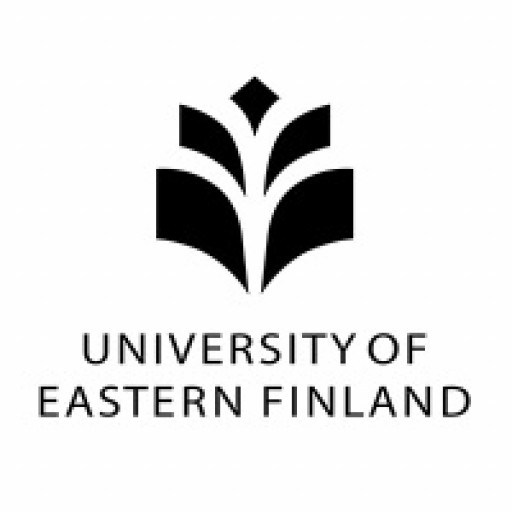Photos of university / #oxford_uni
The Master of Science in Climate Change and Environmental Policy at the University of Oxford is a comprehensive and interdisciplinary programme designed to equip students with the knowledge and skills necessary to address some of the most pressing environmental challenges of our time. This programme brings together expertise from a range of fields, including environmental science, economics, politics, and law, providing a well-rounded understanding of the mechanisms behind climate change, its impacts, and strategies for mitigation and adaptation.
Students will engage with cutting-edge research and participate in rigorous coursework that covers climate science fundamentals, policy development, environmental Economics, international climate negotiations, and sustainable development. The programme emphasizes critical thinking, analytical skills, and practical application, preparing graduates for careers in policy analysis, environmental consultancy, governmental and non-governmental organizations, research institutions, and international bodies committed to combating climate change and promoting sustainable environmental practices.
Throughout the programme, students benefit from the expertise of leading academics and practitioners, receiving mentorship and participating in seminars, workshops, and field visits that enhance their understanding of real-world environmental issues. The course structure typically involves core modules, elective options, and a supervised research project or dissertation, enabling students to tailor their studies according to their interests and professional goals.
The Master’s programme aims to produce graduates who are not only knowledgeable but also capable of translating scientific insights into effective policies and solutions. With Oxford’s global reputation and extensive networks, students gain valuable opportunities for collaboration, internships, and engagement with policymakers and industry leaders. The programme also encourages critical reflection on ethical, legal, and social dimensions of climate change, fostering responsible leadership in tackling environmental challenges.
Designed to be both intellectually rigorous and practically relevant, the MSc in Climate Change and Environmental Policy prepares students to be proactive agents of change, contributing to the development of sustainable solutions and policies that safeguard the environment for future generations. Graduates will leave with a deep understanding of the complexities of climate issues and the skills necessary to drive impactful projects and initiatives across the globe.
There are full-time and part-time routes available. Currently the overall expected contact time for the part-time route is thirty days at Oxford per year, but the majority of this will take place across the three eight week terms, and will include supervision meetings and core research training. In the first year, part-time students will normally be expected to be in department every Thursday during term time. In later years there is greater flexibility and contact time will be agreed between the student and their supervisor.
The department's doctoral students develop their skills through a range of research methods and skills training courses in their first year. At the heart of the skills provision is the Research Training Seminar, where students present and develop their research ideas and proposals with the benefit of feedback and support from their peers.
You will work closely with supervisors on literature review and study design for the thesis, and you are encouraged to make the most of the doctoral training and research methods provision available across the Social Sciences Division.
You can also join one or more of the department's research groups, becoming part of a vibrant educational research community with an active set of doctoral student-led events, seminars and conferences. All DPhil students are given opportunities to present their work at a variety of seminars and sessions in the department.
You will complete appropriate coursework tasks, and your academic progress is assessed at an interview at the end of the first year.
Applicants are normally expected to be predicted or have achieved a first-class or strong upper second-class undergraduate degree with honours (or equivalent international qualifications), as a minimum, in a relevant subject, preferably in the social sciences.
For applicants with a degree from the USA, the minimum GPA sought is 3.6 out of 4.0.
You will have achieved or be on course to achieve a master's degree (normally a mark of at least 68 or a GPA of 3.6 or equivalent and at least 68 in your dissertation) in a relevant subject.
If you hold non-UK qualifications and wish to check how your qualifications match these requirements, you can contact the National Recognition Information Centre for the United Kingdom (UK NARIC).
No Graduate Record Examination (GRE) or GMAT scores are sought.
- Official transcript(s)
- CV/résumé
- Personal statement and research proposal:Statement of one to two pages and proposal of 2,500 words
- Written work:Two essays of 2,000 words each
- References/letters of recommendation:Three overall, generally academic
ENGLISH LANGUAGE REQUIREMENTS
Higher level
|
est |
Standard level scores |
Higher level scores |
||
|
IELTS Academic |
7.0 | Minimum 6.5 per component | 7.5 | Minimum 7.0 per component |
|
TOEFL iBT |
100 |
Minimum component scores:
|
110 |
Minimum component scores:
|
| Cambridge Certificate of Proficiency in English (CPE) | 185 |
Minimum 176 per component |
191 |
Minimum 185 per component |
| Cambridge Certificate of Advanced English (CAE) | 185 |
Minimum 176 per component |
191 |
Minimum 185 per component |
- Global Education
- Hill Foundation Scholarships
- A number of Research Council awards are available each year from the Economic and Social Research Council (ESRC), the Natural Environment Research Council (NERC), and Arts and Humanities Research Council (AHRC).
The Master of Science (MSc) in Oncology at the University of Oxford is a comprehensive graduate program designed to provide students with an in-depth understanding of cancer biology, treatment strategies, and clinical practices. The program is tailored for biomedical scientists, clinicians, and healthcare professionals who are seeking to enhance their knowledge of oncology. The curriculum combines theoretical coursework with practical training, allowing students to explore the molecular and cellular mechanisms underlying cancer, as well as the latest advancements in targeted therapies, immunotherapy, and precision medicine. Students have the opportunity to engage in cutting-edge research projects, often collaborating with leading experts in the field. The program emphasizes interdisciplinary learning, integrating insights from genetics, molecular biology, and clinical research to prepare graduates for careers in research, clinical practice, or healthcare policy related to cancer treatment and prevention. Throughout the year, students attend lectures, seminars, and tutorials that cover topics such as tumor biology, diagnostic imaging, and radiotherapy. The program also offers optional modules and electives, enabling students to tailor their studies according to their specific interests and career goals. Assessment methods include examinations, coursework, and research dissertations. Graduates of the MSc in Oncology are equipped with the knowledge and skills necessary to contribute effectively to the evolving landscape of cancer care and research. Many alumni go on to undertake doctoral research, work in specialist clinical roles, or join healthcare organizations, research institutes, and pharmaceutical industries. The University of Oxford’s strong emphasis on evidence-based medicine, innovative research, and clinical excellence makes it an ideal place for aspiring oncology professionals to develop their expertise and advance their careers.









